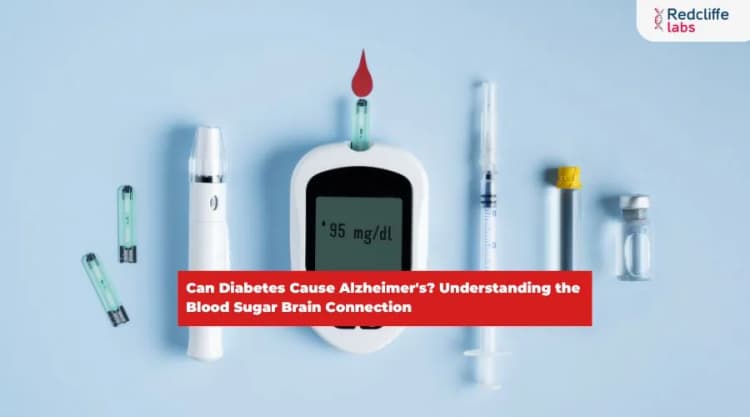Blood
Unlock special
discount on
this package
Login to Unlock 🔓
NABL Accredited lab*

Booking Benefits Unlocked Worth FREE 799

Report Consultation

Diet Plan
*Available once your report is generated.
At Redcliffe Labs, we have a single goal: to give India its right to quality diagnostics.
Customers served
Tests Processed Everyday
Cities
Collection Centres
World Class In-house Labs
Home Collection Experts
4 Test Parameters
Lupus Anticoagulant
4 PARAMETERS INCLUDED
4 PARAMETERS INCLUDED
- Control Value
- Lupus Anticoagulant
- Patient Value
- Screen Ratio
Top Booked Health Checkup Packages
Reports in 12 hours
|Parameters 94
Reports in 12 hours
|Parameters 89
Reports in 12 hours
|Parameters 96
Reports in 12 hours
|Parameters 96
Reports in 12 hours
|Parameters 90
Helps you know your test better
Q. What is the use of the Lupus Anticoagulant test?
Q. What do you mean if the test is positive for lupus anticoagulants?
Q. What are the common signs of Lupus anticoagulants?
Q. What is a negative lupus anticoagulant means?
Verified by Medical Expert

WRITTEN BY
Komal Daryani

MEDICALLY REVIEWED BY
Dr. Mayanka Seth
Table of Content
Introduction to Lupus Anticoagulant DRVVT Test
Your immune system produces antibodies known as Lupus Anticoagulants (LA). Lupus, also called systemic lupus erythematosus, is an autoimmune disease where the immune system mistakenly attacks your immune system and causes inflammation. Sometimes, they attack certain components of the body’s cells. They attack phospholipid proteins found in the outermost layer of cells.
Doctors recommend the lupus anticoagulant DRVVT test, which stands for Dilute Russell Viper Venom Test. This sensitive test uses reagents containing low levels of phospholipids to detect this abnormality and understand its cause.
Abnormal antibodies represent an increased risk of blood clots. Initially, the testing involves DRVVT or PTT-LA. The DRVVT blood test measures the time it takes plasma to clot. If they suggest the lupus anticoagulant DRVVT screen test, avail yourself of it from Redcliffe Labs. We have 3600+ tests available at an affordable price. The lupus anticoagulant DRVVT test cost is INR 1900. Redcliffe Labs offers an at-home sample collection service with on-time delivery.
Test details in brief
| Also known as | Lupus anticoagulant test, lupus inhibitor, dilute Russell viper venom test, modified Russell viper venom test, LA sensitive. |
| Purpose | To detect any abnormal antibodies that may cause blood clotting. |
| Preparation | Follow a balanced diet. |
| Fasting | The test needs no fasting. |
| Get reports within | 15 Hours |
| Cost | 1900 |
Lupus Anticoagulant DRVVT Test Purpose
Despite its name, the test is not for Lupus. The DRVVT blood test finds which antibodies or proteins are causing a blood clot. Antibodies are proteins in your immune system that fight against viruses and bacteria. The Lupus Anticoagulant DRVVT screen test aims to investigate the cause of blood clots. The test also evaluates the prolonged partial thromboplastin time (PTT) and determines the cause of recurrent miscarriages. The test helps in detecting if the health condition is temporary or permanent.
What is the Lupus Anticoagulant DRVVT test used for?
It is a test used to detect LA in the blood. LA is an autoantibody linked with the formation of excessive blood clots. Doctors might recommend the Lupus Anticoagulant DRVVT blood test to determine the following:
- Unexplained blood clots in the vein or artery.
- Reason for Miscarriage.
- Diagnose excessive clotting disorder (thrombophilia) with factor V Leiden, antithrombin, or proteins C and S.
- Diagnosis of antiphospholipid syndrome (APS) with cardiolipin antibody and anti-beta2-glycoprotein.
- Prolonged PTT test, which is unexplained
- Signs and symptoms of APS (mentioned above)
- Signs of deep vein thrombosis (DVT)
- Signs of Pulmonary Embolism (PE)
Symptoms of Lupus Anticoagulant DRVVT test
Healthcare providers consider the DRVVT screen test with other blood clot tests to detect and confirm LA and exclude their presence.
- Certain medications
- Pain, swelling, and discolouration in the leg
- Fatigue
- Sweating
- Rapid breathing
- Rashes
- Blood clots in the legs and arms.
- Recurrent miscarriage
Causes of Lupus Anticoagulant DRVVT
Doctors called it lupus anticoagulant when blood samples in an individual with lupus didn't clot within a specific time. However, it is not the only time when lupus patients can have antibodies. Lupus anticoagulants belong to anti-phospholipids (group of antibodies). These antibodies can react with phospholipids or fat molecules, which can affect the functionality of cells. The lupus anticoagulant can cause:
- Narrowing of blood vessels
- Low platelet count
- Stroke
- Thrombophilia
- Transient ischemic stroke
- Miscarriage
Blood clots in the lungs or heart area can cause:
- Pain in the chest
- Fatigue
- Heavy sweating
- Dizziness or weakness
- Breathing difficulty
Blood clots in the kidney or stomach can cause:
- Bloody stool
- Diarrhea & nausea
- Thigh pain
- Fever
- Stomach pain
Blood clotting in the arm or leg can lead to:
- Numbness or tingling hands and legs
- Pain
- Swelling
- Discolouration
- Redness
Certain major causes include:
- Anti-beta 2 glycoprotein 1
- Anticardiolipin antibody
- False-positive syphilis
- Anti-prothrombin
Why Would a Doctor Recommend the Lupus Anticoagulant DRVVT test?
50% of people with Lupus will have lupus anticoagulant antibodies. However, people who don’t have lupus can also have antibodies, but the percentage is just 2% to 4%. Lupus anticoagulant is common in older adults and women, especially pregnant women. The doctor would recommend the DRVVT screen test to check the cause of blood clots. Other reasons include:
- Reason for unexplained blood clots
- An individual has lupus yet sees signs of blood clots.
- Repeated miscarriage
- Blood is taking longer than expected to clot.
- Hepatitis C (infection by hepatitis C virus)
- Epstein-Barr Virus (human herpesvirus 4)
- Syphilis (bacterial infection)
- Oxidative stress (damage by free radicals)
- Surgery
- Certain medications
Preparation for the Lupus Anticoagulant DRVVT test
The DRVVT test is a blood test. It does not require major preparation. However, to ensure a smooth procedure and correct reports, incorporate these guidelines into your daily routine.
- The DRVVT blood test needs no fasting. It is better to follow your daily diet. Further, consult your doctor to know which food is right for you. If you follow a diet, consult a dietician.
- Avoid taking high protein-rich foods or protein supplements. It can hinder test results.
- Avoid over-exercising and lifting heavy weights.
- Keep yourself hydrated by drinking 4 litres of water a day.
- Limit excessive alcohol and avoid smoking, especially before the test. It can severely affect the test reports. Additionally, alcohol and smoking are hazardous to health.
- Clear your doubts with your doctor. It can keep your mind stress-free and calm.
- Practice yoga and meditation daily to keep your mind calm.
Procedure of the Lupus Anticoagulant DRVVT test
The Lupus Anticoagulant (LA) DRVVT screen test requires a blood sample. The test can take place in a hospital or at home. Redcliffe Labs offers an on-home sample collection service at INR 1900. The test procedure involves a blood sample, transportation, screening, testing, and results. Our phlebotomists will follow this procedure:
- Choose a clean and well-lit space for blood collection. They will take out a blood collection kit.
- Ask to make yourself comfortable so that they can conduct a smooth blood test procedure.
- They will tie a band on the upper arm to make the vein visible.
- At the site, they will clear it with an alcohol wipe. They are usually done to minimise discomfort and reduce the risk of infection.
- They will insert a sterile syringe into the vein to collect the required blood samples.
- Allow a small amount of blood to form, and then gently squeeze or massage the finger to help the blood flow.
- Collect the blood into a tube or a container.
- After that, they will put a cotton gauze over the puncture site to stop bleeding. You might use a bandage or adhesive strip to cover the site.
- Label the sample with your details, such as name, collection time & place, and date.
- They will transport the sample to a laboratory for testing.
- This collection and transportation of the DRVVT test cost INR 1900 and receive reports within 15 hours.
Risks associated with the Lupus Anticoagulant DRVVT test
The DRVVT screen test has no or minor risks. Here are certain risks of the lupus anticoagulant DRVVT Test:
- Excessive blood flow
- Nausea
- Weakness
- Dizziness
- Skin infection
- Fainting
- Slight pain
What Other Tests A Doctor Might Recommend?
The Lupus Anticoagulant DRVVT blood test gives accurate results. However, a doctor might recommend other tests to have clarifying results. These tests include:
- Activated partial thromboplastin time
- Anticardiolipin antibody
- Kaolin clotting time
- Complete blood cell count
- Coagulation factor assays
- Platelet neutralisation procedure
- Modified Russell viper venom time
Understanding the Results of Lupus Anticoagulant DRVVT Test
The Lupus Anticoagulant Dilute Russell's Viper Venom Test is a laboratory test. It can detect LA’s presence (an antibody associated with an increased risk of blood clotting). Here's a breakdown of what the results might indicate:
Interpretation of Results:
- Normal Results:
The DRVVT screen test should yield a result within the normal range, indicating LA's absence. Researchers commonly use a ratio to report results by comparing the test sample to a control. Typically, the normal ratio is <1.20. Any ratio outside the normal range indicates LA's absence or undetectable presence in the test results.
- Prolonged Results:
If the DRVVT result shows a longer-than-normal clotting time, it suggests the presence of LA. There are fewer chances of blood clotting here.
- Confirmatory Testing:
A positive DRVVT may need to be confirmed with additional tests, such as the LA mixing study or other assays. It assists in ruling out the presence of other clotting disorders or anticoagulants.
Is Any Further Assessment Required?
- Diagnosis of Antiphospholipid Syndrome (APS): A positive result can be part of the diagnostic criteria for APS. It is a condition that increases the risk of blood clots and miscarriages.
- Assessment of Clotting Risk: Individuals with a positive LA test may need to manage their clotting risk. Depending on the overall health and other risk factors, this can be done with medication or lifestyle changes.
What is the treatment of the Lupus Anticoagulant DRVVT test?
The treatment of Lupus Anticoagulant depends on several factors, including the risk of clotting, overall health, and under-prevailing symptoms of APS. A doctor is the best one to guide you with the right treatment. However, here is a general overview of what treatment you can manage:
- Warfarin (Coumadin): A common anticoagulant used to reduce the risk of blood clots. Regular monitoring is required to ensure the blood is appropriately thinned.
- ● Direct Oral Anticoagulants: Doctors might use medications such as rivaroxaban, apixaban, and dabigatran. By this, they can detect LA’s various factors and clinical guidelines to apply to their patients.
- Low-Dose Aspirin: In some cases, doctors can suggest low-dose aspirin, especially if there is a history of blood clots or recurrent pregnancy loss.
- Individuals may need to avoid certain triggers that can increase clotting risk, such as smoking and prolonged periods of immobility.
- Regular follow-up appointments to monitor blood clotting levels and adjust medication as needed are essential for those on anticoagulants.
How Can You Manage It?
Management of Associated Conditions:
If the lupus anticoagulant is part of a broader autoimmune condition, manage it with the appropriate medications and therapies.
Pregnancy Management:
Conceived or convincing women often require special management for LA. It includes the use of anticoagulants to reduce the risk of pregnancy-related complications, including miscarriages or preeclampsia.
Lupus Anticoagulant DRVVT test price
The Lupus Anticoagulant DRVVT blood test detects lupus anticoagulants. At Redcliffe Labs, the DRVVT test price is INR 1900. This fee includes the collection and analysis of the blood sample and test results. For accurate and on-time reports, choose Redcliffe Labs. We are available in all of India.

Lupus Anticoagulant (DRVVT) Test Cost in Different Cities - Redcliffe Labs
| City Name | Discounted Price |
| Delhi | ₹1900 |
| Ahmedabad | ₹1900 |
| Mumbai | ₹1900 |
| Bangalore | ₹1999 |
| Noida | ₹1900 |
| Pune | ₹1900 |
| Lucknow | ₹1900 |
| Hyderabad | ₹1900 |
| Chennai | ₹1900 |
| Gurgaon | ₹1900 |
| Jaipur | ₹1900 |
| Faridabad | ₹1900 |
| Indore | ₹1900 |
| Patna | ₹1900 |
Note: We also offer Lupus Anticoagulant (DRVVT) Test PAN India. Please call the number 8988988787 to check the availability of our services in your area.
5 Simple Steps to Manage Your Health with Redcliffe Labs
Quick, Simple & Convenient; trusted care delivered to your doorstep.

Start Your Online Booking
Open the Redcliffe Labs website/app. Select the test or package and enter your details. Schedule the service for your preferred slot.

Live Tracking
Stay updated with real-time tracking for a smooth and timely home sample collection.

Sample Collection
Our certified experts ensure a smooth, hygienic, and fully compliant sample collection experience.

Doctor-Verified Smart Reports
Every report is clinically checked by expert doctors and shared with smart, actionable insights.

Your Health Journey Continues Post Reports
Consult with our expert medical team to get actionable insights to improve your health.
Nearby Labs(9)
Redcliffe Labs Noida

MC-5280
Redcliffe Collection Center
Redcliffe Collection Center
Redcliffe Collection Center
Redcliffe Collection Center
Redcliffe Collection Center
Redcliffe Collection Center
Redcliffe Collection Center
Redcliffe Collection Center
Frequently Asked Questions
What is the DRVVT test?
Why is the DRVVT test performed?
How is the DRVVT test different from other blood clotting tests?
What conditions can the DRVVT test diagnose?
How should I prepare for the DRVVT test?
How is the DRVVT test conducted?
What do normal results in a DRVVT test indicate?
What do abnormal results in a DRVVT test mean?
Can medications affect the DRVVT test results?
What are the next steps if the DRVVT test results are abnormal?
Can I book a Lupus Anticoagulant (DRVVT) Test near me?
Can I book a home collection for a Lupus Anticoagulant (DRVVT) Test?
Health Articles & Blogs
My Health
Stay informed with our expert health articles and blogs. Explore comprehensive guides on diseases, nutrition, preventive care, and wellness tips to help you make better health decisions.
What to Drink to Lose Belly Fat in 1 Week

Can Exercise Really Treat Depression? What Research Says
Discover what research says about exercise and depression. Learn how physical activity may improve mood, reduce symptoms, and support mental health.

Is It Good to Eat Dried Cranberries Every Day? Benefits & Risks
Discover the health benefits and potential risks of eating dried cranberries every day, including sugar levels and portion tips.

7 Health Screenings Every Woman Above 30 Should Get Done Annually

Fat vs Muscle: Are they Different?

Can Managing High Blood Pressure Lower Uterine Fibroid Risk?

Debunking Epilepsy Myths: What Everyone Should Know

Can Diabetes Cause Alzheimer's? Understanding the Blood Sugar Brain Connection
Explore the link between diabetes and Alzheimer’s disease. Learn how high blood sugar may affect brain health, memory, and long-term cognitive function.
Explore My Health
